In a wide variety of industries like insurance, textiles, food and electronics, women are transforming family businesses. Family Business's list of Transformational Women in Family Business provides a snapshot of the many styles of leadership.
These women are innovating. They are enhancing corporate culture. They are showing entrepreneurial spirit and growing their businesses. They are learning through experience about leadership — and then sharing that knowledge with others. They are broadening the definition of inclusion to create workplaces that work for everyone. They are using ESG principles (environmental, social, and governance) to break new ground for their companies. And they are preserving the legacies their families have built.
The women profiled here hail from all over the United States. Some have just taken over — or are preparing to take over — their family's business. Others have led their companies and are now moving on to a new phase in their careers, stepping away from day-to-day management and finding ways to share their knowledge with others.
These women were chosen by a panel of Family Business editorial staff members and advisers.
CULTURE
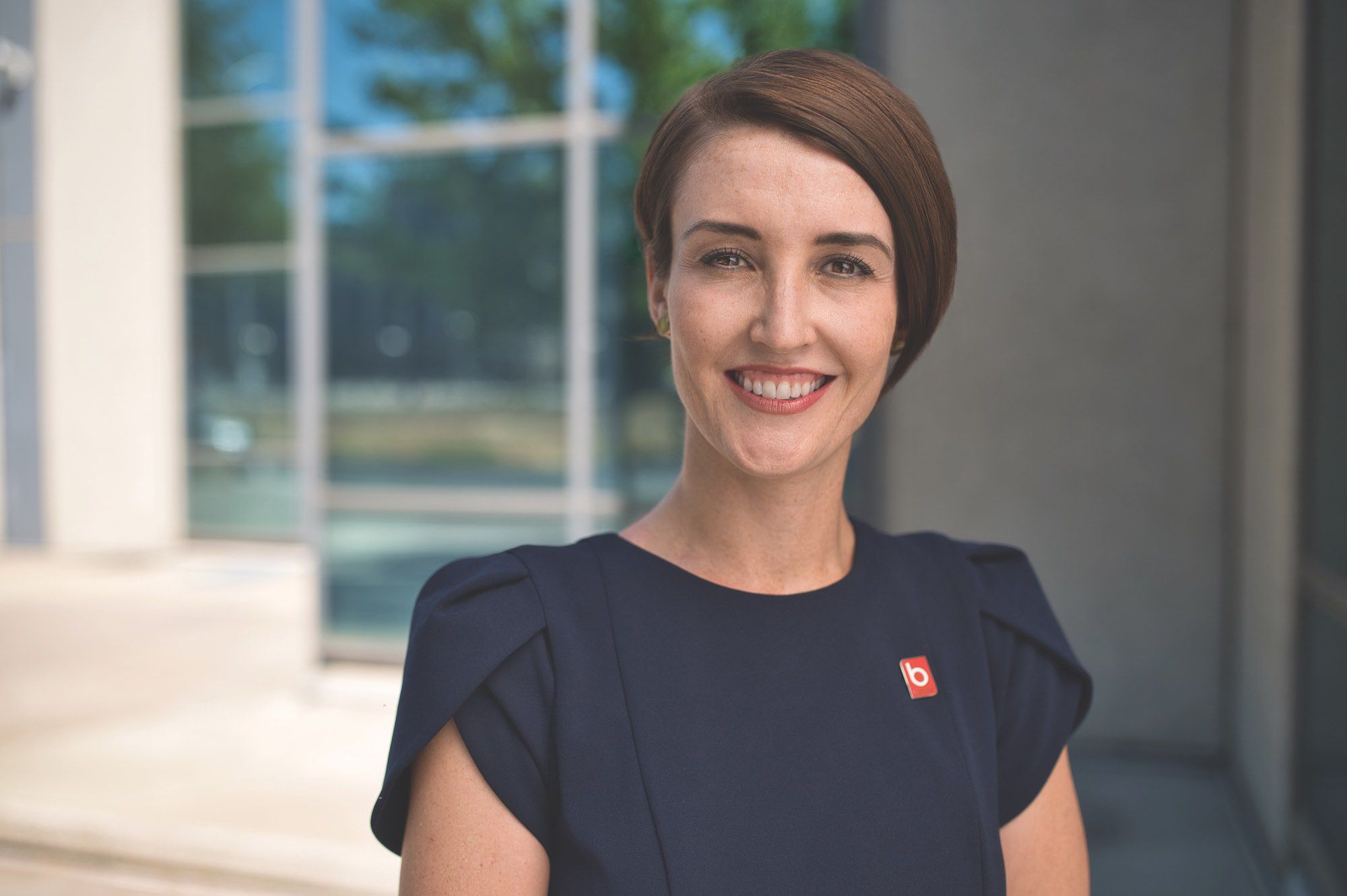
Maggie Bender-Johnson
President
Bender Insurance Solutions
Roseville, California
In a shift that illuminated its move to an employee-centric culture, Bender Insurance Solutions became employee-owned at the end of 2018.
“Besides addressing our ownership succession issues, becoming employee-owned was the best thing that we could do to engage our employees in shaping our shared future,” says Maggie Bender-Johnson, president and a member of the third generation of family leaders at the insurance, surety and risk management brokerage.
The business engaged a consultant to work with the new employee-owners on updated corporate values — Positivity, Connection, Collaboration, Accountability and Future-Focus — that reflect the company culture.
Positivity is important, for example, because “we deal with clients when terrible things happen,” Bender-Johnson says.
And in the post-pandemic hybrid workplace, connection is also crucial. “How can we maintain intentional connections without being together five days a week?” she says.
The hybrid workplace is a good example of the employee-owners' influence. Because many preferred working from home, “we challenged ourselves to make working from home a success for our business and employees,” Bender-Johnson says.
Another example of the employee-centric culture: finding ways to be a long-term employer for team members as they move through different phases of their lives. This could mean, for example, developing a new role for an employee approaching retirement who wants to step back.
When Bender-Johnson came on board, the company's values were solid but “not at the core of anyone's soul,” she says. Whereas some family businesses may have faith, for example, as a guiding principle, “that's not us.” She and her father have different views on religion, and “we're more of a ‘you do you' kind of culture.”
The new values reflect the employee-owners' voice.
“Unlike a manufacturer, where you have a product that you're selling, our biggest asset is our people,” she says.
ESG:
ENVIRONMENT
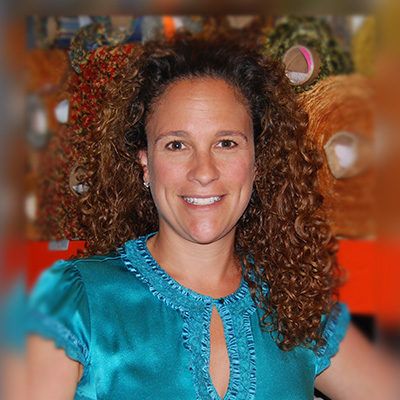
Diana Dobin
CEO and Chief Sustainability Officer
Valley Forge Fabrics
Fort Lauderdale, Florida
About 15 years ago, Diana Dobin and her brother, who are co-CEOs of Valley Forge Fabrics, started getting customer requests for sustainable textiles.
Dobin, who is also the company's chief sustainability officer, says that at the time, “we didn't really understand what ‘sustainable' was.”
The company was started over 40 years ago by their parents, who first sold fire-retardant draperies to theaters and then branched out to selling textile products to the hospitality industry: upholstery fabrics, headboard upholstery, window treatments, linens, decorative bedding and fancy pillows.
To move toward sustainability, they started examining the raw materials they used; how much water, energy and chemicals were used in the production process; how long the products last; the waste and efficiency in the production processes; and what happens to the products when they can no longer be used by hotels.
“Now sustainability is a regular part of our business,” Dobin says. Although not everything they make is an environmental product, sustainability is considered at every step, and a third party evaluates the company's sustainability practices and its products every year.
Their Florida facility is LEED Silver certified: “We made sure that all of our team was breathing the cleanest air possible,” Dobin says.
The commitment to sustainability is a selling point with potential employees, Dobin says: “People fundamentally want to do good and feel like we're all a part of something bigger.”
The company has grown while on its sustainability push. It had about 80 employees when she and her brother started looking at sustainability and has 250 today.
The pandemic hit their hospitality industry customers — and thus their business — hard. But Valley Forge has continued working on products, developing upholstery fabrics made from reclaimed marine and coastal plastics – plastic that has been reclaimed from beaches or the ocean. “You would never know that it's recycled or upcycled – it just looks like beautiful fabric,” she says.
ESG:
SOCIAL
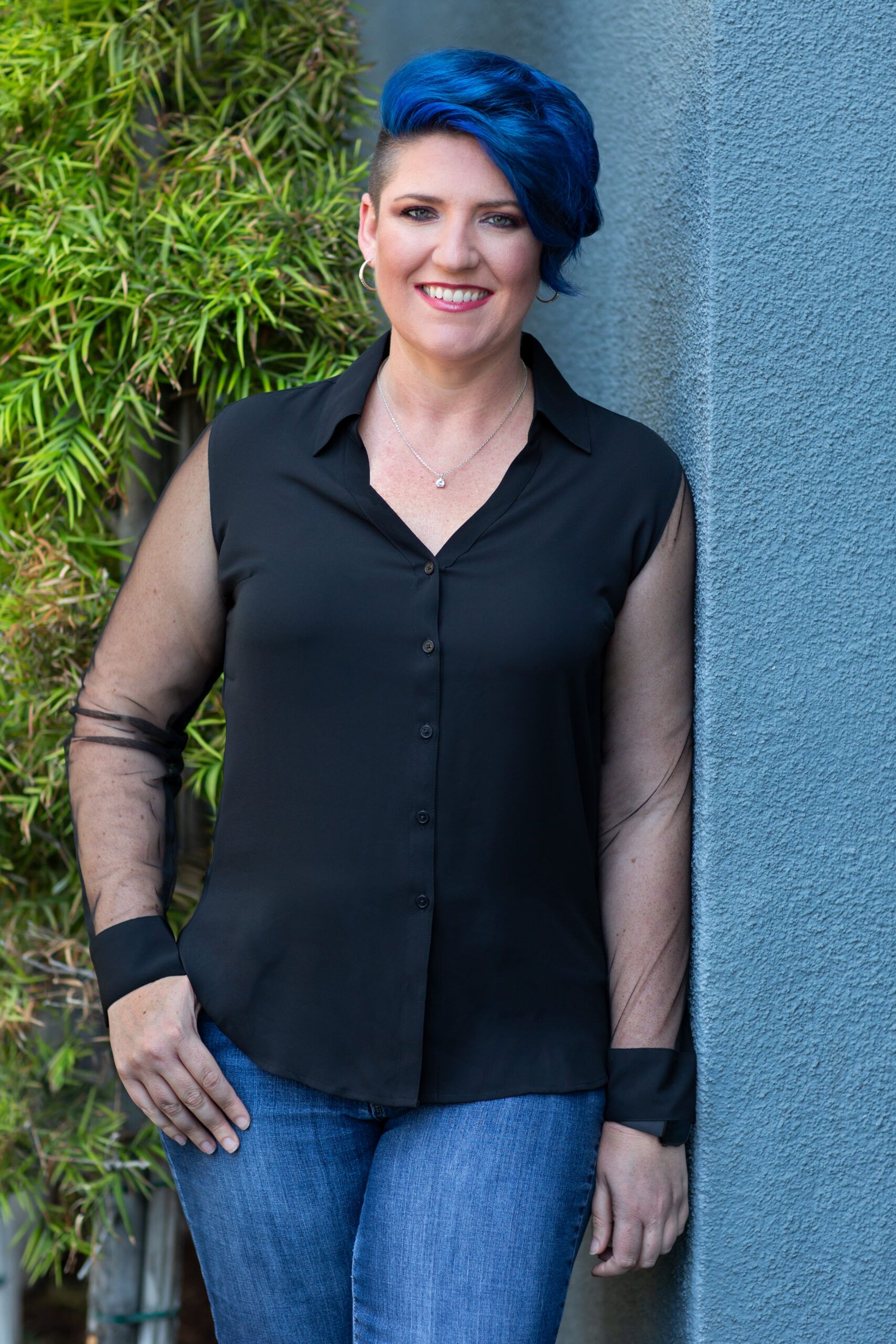
Heather Falcone
Chief Executive Officer
Thermal-Vac Technology
Orange, California
At Thermal-Vac Technology, team members can attend weekly meetings of Alcoholics Anonymous on site. Workers who have faced barriers to employment, such as homelessness or a criminal conviction, are assigned a buddy to help them navigate the workplace.
“We do anything and everything for our team to keep them safe and happy,” says CEO Heather Falcone. “We've had them bring their kids to work when they can't stay at home. We've put them in a hotel to get away from domestic abuse.”
Although the company has had a partner in providing that support — a social justice nonprofit called Chrysalis – since 2019, Thermal-Vac has been “hiring out of AA and transitional housing for 20 years,” Falcone says. “That second chance is our genetics.”
This focus has its roots in the experience of Falcone's father, who started Thermal-Vac in 1985. The company, a high-tech service supplier to the aerospace and defense industries, provides heat treating, brazing and chemical processing for specialty materials.
“My dad got sober in 1990 and started going to AA,” Falcone says. “In the meetings, he would meet people who couldn't get jobs because of their alcoholism. So he started hiring them.”
Falcone continued this work as she took on leadership roles.
She became CEO in 2019. Today, women make up more than half of her leadership team, and a quarter of them have faced systemic barriers such as homelessness, addiction, extreme poverty or experience in the criminal justice system.
And over 30% of the company's team members are Chrysalis clients. “There are a lot of resources for employers that want to take a chance on giving somebody a second chance,” such as tax credits for hiring people who have been homeless, released from prison or on public assistance, Falcone says.
The result is team members who are “super loyal, very excited and happy to be here.”
ESG:
GOVERNANCE
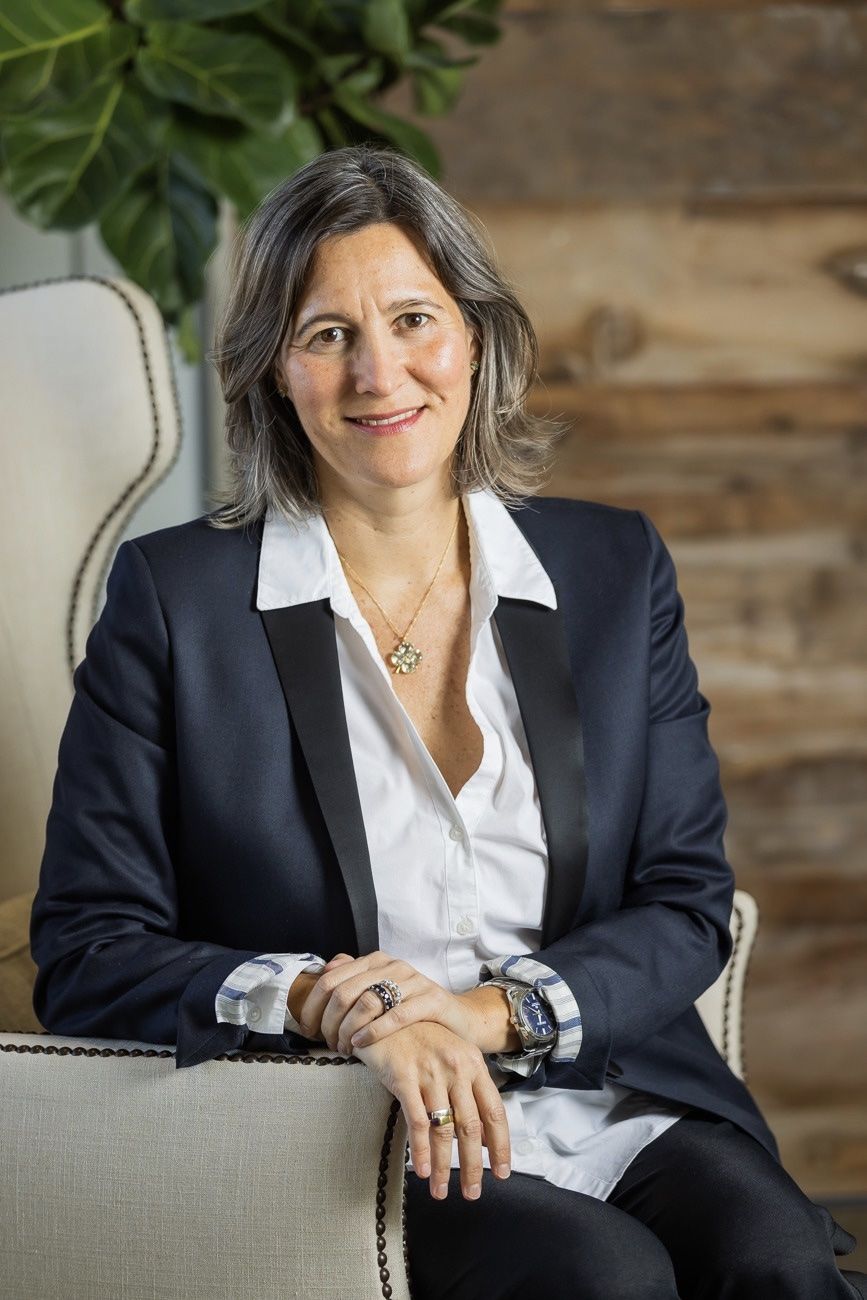
Veronica Maldonado
Board Chair, GEMIS Family Companies
Advisor and Head of Coaching Practice, Generation6 Family Enterprise Advisors
Miami, Florida
Veronica Maldonado grew up in Venezuela, embedded in the family's agricultural and industrial business. During the presidency of Hugo Chavez, the state confiscated the ranch that for 100 years had been the heart of the family business. The family made the gut-wrenching decision to rebuild the business in the United States, where they bought a new operating company and real estate investments.
Maldonado, a fourth-generation family leader, today serves as board chair for the business, GEMIS Family Companies. It is diversified in three main areas: an operating company (Indian River Select Juices), real estate investments and an investment portfolio. In addition, it has international activities in Venezuela and South Africa.
Maldonado is also putting her decades of family business experience to use as an advisor and head of the coaching practice at Generation6 Family Enterprise Advisors.
Generartion6 aims to address relational issues with relational solutions and structural problems with structural solutions – and avoid applying structural solutions to what is really a relational problem.
Otherwise, “what you end up doing is cementing the relationship problem, you don't resolve it,” she says. For example, if the youngest sibling in a family is causing problems in the business, the solution needs to focus on dealing with the situation, the individual and the dynamics of the family — not necessarily on a new rule saying youngest siblings can't participate in the business. “You can write an elaborate employment policy or agreement, but then you may never address the actual issue and miss an opportunity to heal the relationship.”
A well-governed family business is a vehicle for putting the family's values into action, she says. “We've seen a narrative that you have to protect the business from the family. However, in a healthy family, the values of the family, their care and energy, can power and fuel the business.”
INNOVATION
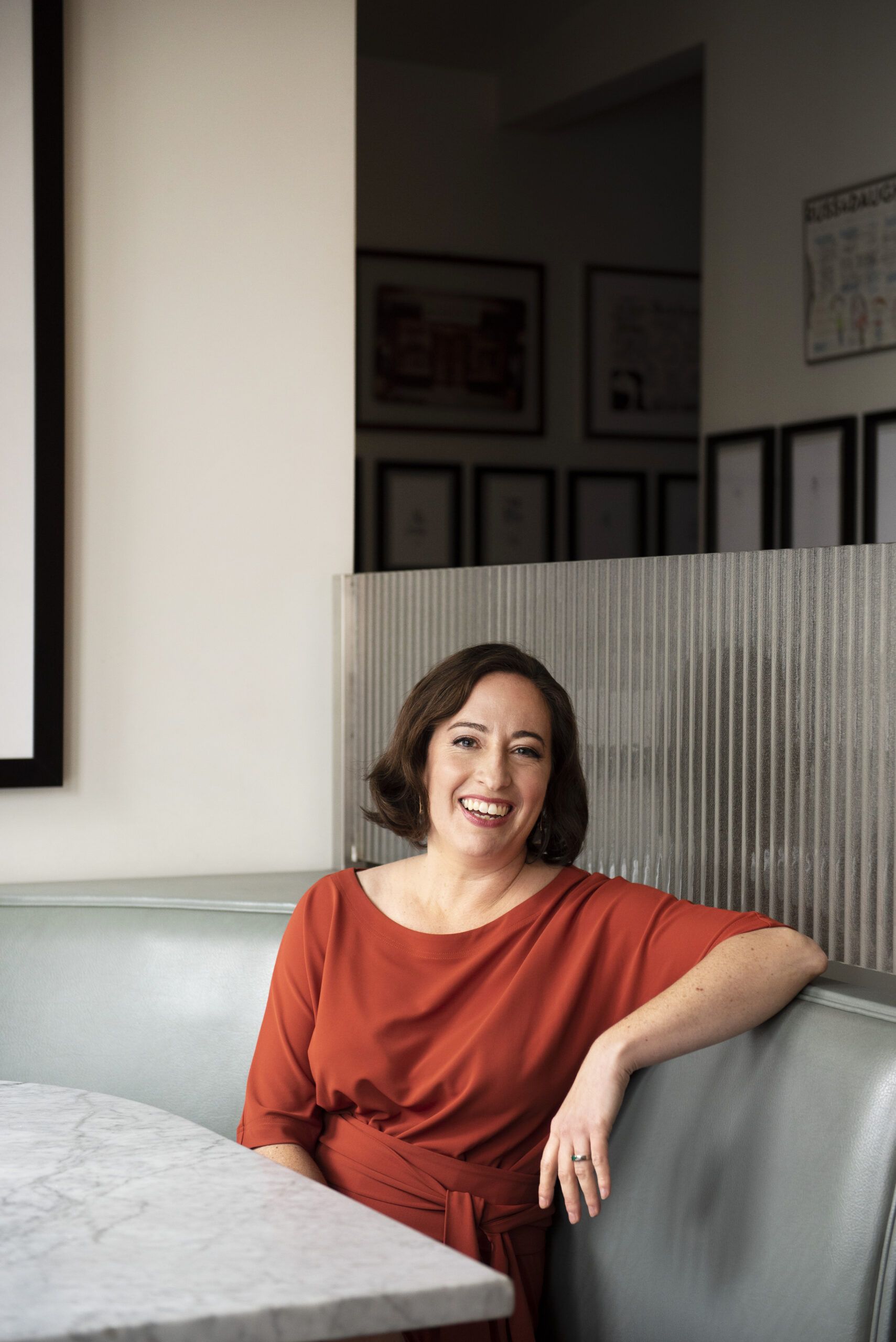
Niki Russ Federman
Fourth-Generation Owner
Russ & Daughters
New York City
Niki Russ Federman wrote in her business school application that she wanted to expand her family's business by adding locations and ecommerce. At the time she applied, though, she actually viewed business school as a way to escape the business.
“The irony is that I quickly realized that doing statistics for consulting firms was not going to give me the clarity I was looking for,” she says. “I dropped out of business school, and I ended up coming back to Russ & Daughters and doing the things I said I was going to do in that essay.”
Today, Federman is the fourth-generation co-owner (with her cousin) of Russ & Daughters, a New York food institution founded in 1914 that sells appetizing foods such as smoked fish, caviar and bagels. She joined the business in 2006, and she and her cousin assumed ownership in 2010.
“Just because something is 100 years old doesn't meant it has to be frozen in time,” she says. “I can continue to innovate.”
Federman and her cousin have quadrupled the company's nationwide shipping. They have also opened two restaurants, a Jewish bakery and an 18,000-square-foot multiuse space in Brooklyn with an appetizing counter, indoor and outdoor seating, a bakery, offices and warehouses.
“We needed to create the physical infrastructure so we could grow and continue for the next few generations,” she says.
They have also innovated in less visible ways, such as upgrading the business's technology.
Although the COVID-19 pandemic was a challenge, Federman notes that the company has survived recessions, the Great Depression and two world wars.
“Every generation in the leadership of Russ & Daughters has gone through some real adversity,” she says. “My great-grandfather went through the first global pandemic. I'm committed to making sure Russ & Daughters can be around for another 100 years.”
INCLUSION
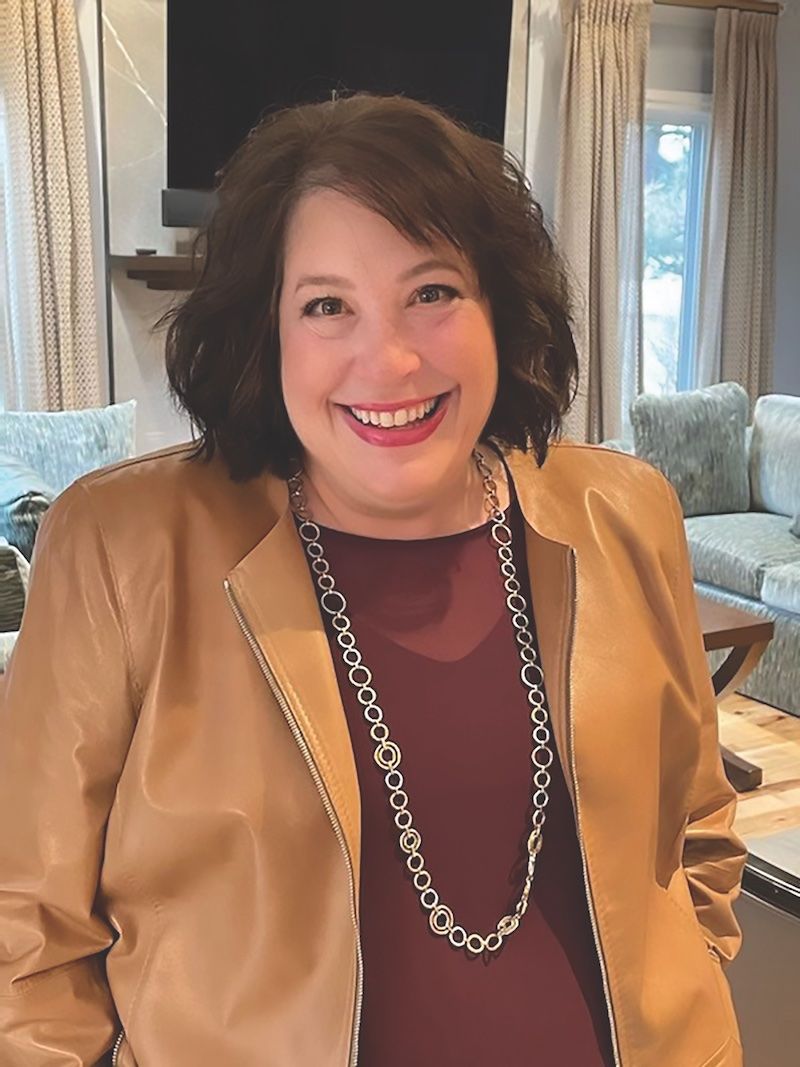
Alison Gutterman
President and CEO, Jelmar
Skokie, Illinois
Alison Gutterman has spoken and written on subjects such as work/life balance, mental health in the C-suite and systemic racism. And her experience as the third-generation family owner of Jelmar, a cleaning products manufacturer, has given her an expansive view of inclusiveness in the workplace.
She wants Jelmar to be a company where everyone feels comfortable. A presentation a number of years ago, for example, opened her eyes to diversity issues including language that many people may not realize is offensive.
“It's not that people are inherently racist, but different terms that we use could be offensive to other people,” she says.
Admitting you don't know something and being willing to learn — whether it's a potentially offensive expression or an employee's dietary restriction — is at the heart of diversity, equity and inclusion, she says.
“You have to be willing to be uncomfortable and know there are things that you don't know,” she says.
Gutterman has also worked to diversify the company's workforce. Out of 22 employees, four are people of color and more than half are women, including three women in senior positions.
Recently the company has added five positions and hired replacements for two others. Jelmar has used several strategies to attract diverse candidates, including asking recruiters to present a diverse pool of candidates and broadening the searches to include remote workers.
Jelmar has also welcomed candidates from much larger companies.
“Why would somebody want to work for a company that is only 22 employees?” Gutterman says. “We've gotten much better at not being apologetic.”
In the past year, Jelmar has hired four employees who have worked for multibillion-dollar corporations, bringing with them big-company expertise in sales, R&D and ecommerce. They have learned about big-company business processes from these new employees.
“We want to challenge ourselves to be uncomfortable,” Gutterman says.
LEADERSHIP
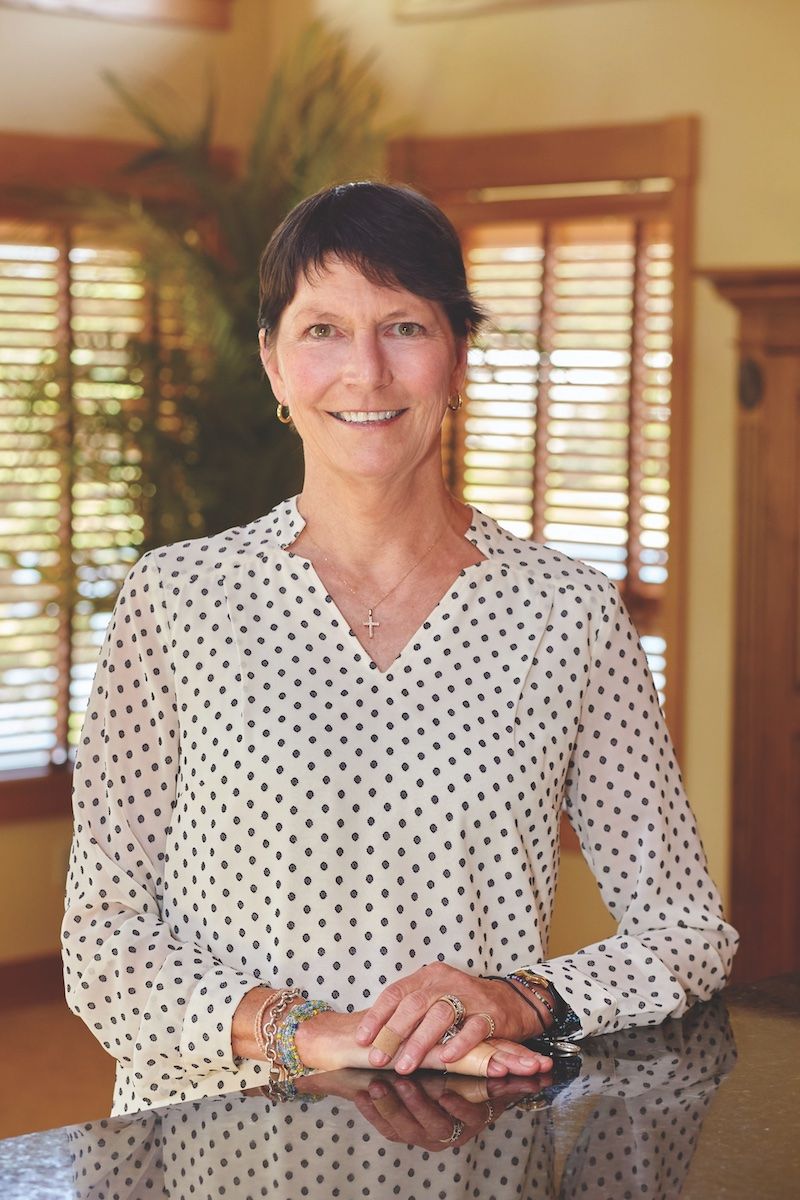
Anne Eiting Klamar
Board Chair
Midmark
Versailles, Ohio
After serving for 15 years as CEO of Midmark, the medical equipment and medical device manufacturer that is her family business, Anne Eiting Klamar moved to being board chair in January 2016.
“It was hard to go from being CEO and the largest shareholder to taking a hands-off approach to the day-to-day business,” she says. Still, the transition gave her time to focus on issues such as family governance.
Working with a consultant, the family considered the company's mission, vision, values and purpose. They created a family charter, spelling out what they expected of each other and who makes up the family assembly and family council. The hardest part was writing a buy-sell agreement, addressing what happens if a family member wants to sell their shares.
“It takes time” to iron out all these details, Klamar says. “I couldn't get to it when I was CEO, and it's the right thing to do for the next generation.”
She is enjoying her role on the board. Half of the 10 board members are women – “I really value the fact that gender diversity is seen as a good thing by all the board members” – and she is the only family member for now.
She is now sharing what she has learned about leadership — both the hands-on leadership of a CEO and the more removed perspective of a board member — with students in the MBA program at the Kellogg School of Management at Northwestern University.
“In the beginning, as a newly minted CEO, I thought being a CEO was all about you,” Klamar says. “One of the big ‘ahas' for me is that leadership is not about you – it's about everybody else, from teammates to customers.”
She hopes to pass those leadership lessons on: “As one of my favorite mentors said, ‘I've made every mistake in the book – why should you?'”
ENTREPRENEURSHIP

Deryl McKissack
President and CEO
McKissack & McKissack
Washington, D.C.
Deryl McKissack started going to work with her father at his architecture/engineering firm at age 6.
“He would literally prop us on top of the drawing tables and teach us how to draw. By the time we were 12, he was actually using our drawings for his clients,” McKissack says.
When it was time for her to start her own career, McKissack worked in construction until, in 1990, she felt a “burning desire to do something on my own.”
“I had never written a business plan, but I went to Barnes & Noble and got a book,” she says. “I had $1,000, and I wrote a list of 300 people that I needed to talk to about my business.”
By the time she was halfway through the list, she had so much work that she had no time to approach the others.
She named her business McKissack & McKissack as an homage to her grandfather and great-uncle.
Today McKissack's firm is a national architecture, engineering, program and construction management firm. It has made a name for itself through a commitment to best-in-class results in projects spanning industries including aviation, corporate/commercial, health care, K-12, transportation and civic and cultural projects. One example is providing program and construction management services for the National Museum of African American History and Culture in Washington, D.C. The firm also provides program and construction management for school districts across the country.
Running a minority woman-owned business in the construction industry is still a challenge, and McKissack has worked to create a culture that values diversity.
“Back in the '80s, I didn't have a seat at the table,” McKissack says. “I was the last one to hear about decisions. When I started my company, I wanted to make sure that everybody that came in the company had a seat at the table.”
GROWTH
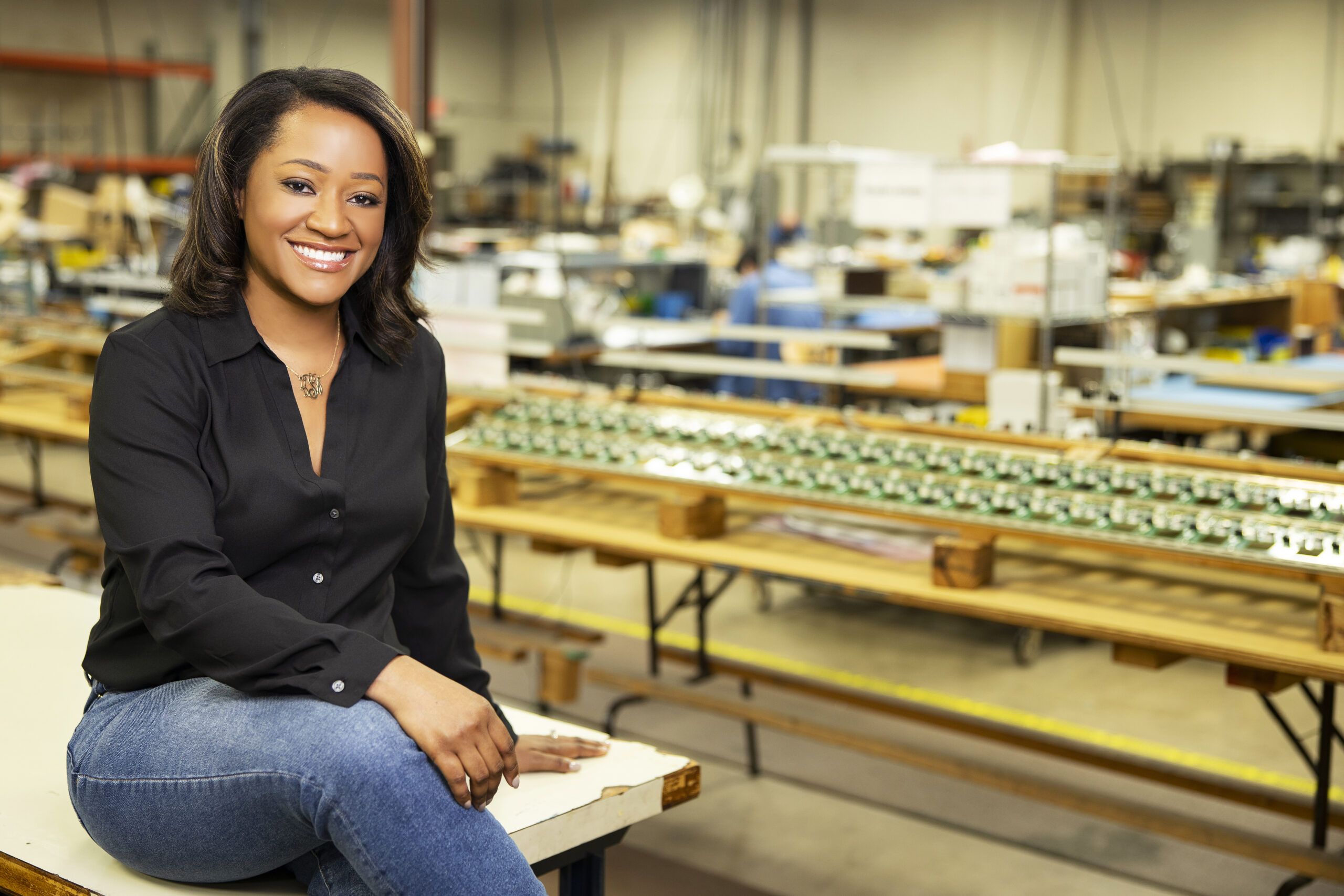
Karla Trotman
President and CEO
Electro Soft Inc.
Montgomeryville, Pennsylvania
Karla Trotman helped her father find the first company Electro Soft Inc. acquired. She asked the company's suppliers if they knew owners in the industry who were looking for an exit — and she started visiting them. They hit it off with the owner of GWL Technologies: “We were able to have a friendly back-and-forth negotiation, and we both walked away very happy.”
Just before the acquisition was completed, in 2017, her father asked her how confident she was that it would be successful. “I said, ‘50-50 — but we've spent more money on worse things,'” she recalls. “That's when he realized that I was willing to take calculated risks for the sake of the company.”
The deal was a success — and in fact, “it really helped us out through COVID,” says Trotman, who took over as CEO of Electro Soft in January 2020, weeks before the pandemic began.
The acquisition is just one example of how Trotman has helped Electro Soft, a contract manufacturer of electronics located outside Philadelphia, grow since she joined the company in 2009.
She has clarified the company's values and mission, professionalized recordkeeping, updated the employee manual and engaged a payroll provider.
“We went from just saying, ‘This is the bathroom,' to having an onboarding process,” she says.
She also revamped the company's marketing, creating content to drive inbound marketing and implementing a CRM tool to help draw customers in.
When COVID hit, Electro Soft decided not to lay off workers and instead started making face shields. “It gave our staff a sense of purpose because they were helping other people during a time when we were all struggling,” Trotman says. “We've really been able to show our personality during this time: the resilience and the fact that we kept our employees. It's been quite a ride.”
LEGACY
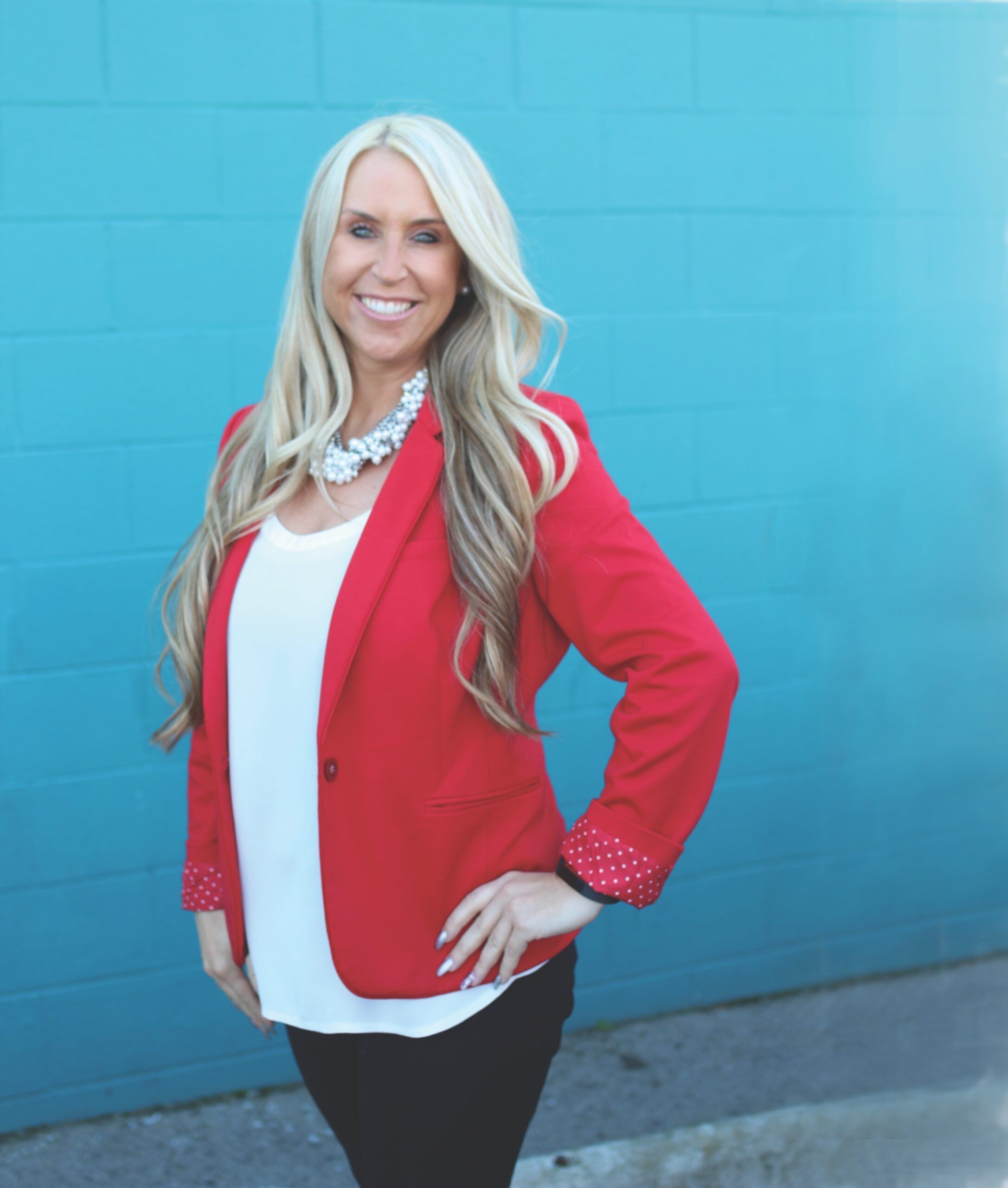
Ashley Webster Rudolph
Associate Publisher, The Business Journal & Pacific Publishing Group
Fresno, California
Ashley Webster Rudolph grew up watching her father and grandfather working together in the 136-year-old family business: the Pacific Publishing Group, parent company of The Business Journal in Fresno, Calif. Fourteen years, ago, she started work in the circulation department of the publication, which covers business news for four counties in California's heavily agricultural Central Valley.
“It really kind of drew me in,” says Webster Rudolph, who today is associate publisher. “We've been around for a long time, and the business community depends on us and trusts us, which is a huge compliment, and I hope to continue that for generations to come.”
For the past several years, she has managed events for the company, pivoting to a virtual format during the pandemic. They now welcome the chance to return to in-person gatherings, though they see possibilities for expanding their reach virtually in the future. For example, an in-person breakfast that would draw 250 may reach 800 participants when it is virtual.
It's one example of how she and her father are moving the company forward while honoring its past. The delicate balance between print and digital is another example. She sees the company's legacy continuing through the information they deliver and the way they deliver it.
“I see us growing more on the digital side but still having the print until we can't afford it anymore,” she says.
She has also taken to heart lessons her father learned from her grandfather:
“Grandpa said, ‘As long as you continue to do what we've been doing all these years – focus on reporting and delivering interesting business news in a timely manner, and give back to the community that has supported our family all of our generations, we will stay successful,'” she says. “'Keep it neutral and always stay away from reporting about politics.'”
Margaret Steen is a freelannce writer and frequent contributor to Family Business magazine.

